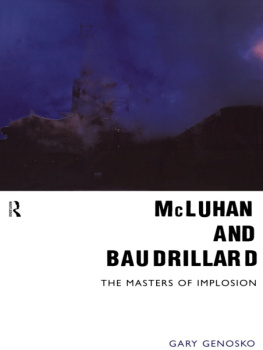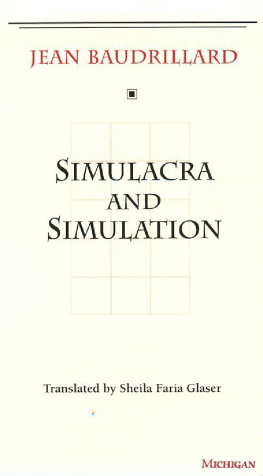VIOLENCE, SOCIETY AND RADICAL THEORY
Classical and Contemporary Social Theory
Series Editor: Stjepan G. Mestrovic, Texas A&M University, USA
Classical and Contemporary Social Theory publishes rigorous scholarly work that re-discovers the relevance of social theory for contemporary times, demonstrating the enduring importance of theory for modern social issues. The series covers social theory in a broad sense, inviting contributions on both classical and modern theory, thus encompassing sociology, without being confined to a single discipline. As such, work from across the social sciences is welcome, provided that volumes address the social context of particular issues, subjects, or figures and offer new understandings of social reality and the contribution of a theorist or school to our understanding of it. The series considers significant new appraisals of established thinkers or schools, comparative works or contributions that discuss a particular social issue or phenomenon in relation to the work of specific theorists or theoretical approaches. Contributions are welcome that assess broad strands of thought within certain schools or across the work of a number of thinkers, but always with an eye toward contributing to contemporary understandings of social issues and contexts.
Also in the series
Torture, Intelligence and Sousveillance in the War on Terror: Agenda-Building Struggles
Vian Bakir
ISBN 978-1-4094-2255-6
The Social Pathologies of Contemporary Civilization
Edited by Kieran Keohane and Anders Petersen
ISBN 978-1-4094-4505-0
Utopia: Social Theory and the Future
Edited by Michael Hviid Jacobsen and Keith Tester
ISBN 978-1-4094-0699-0
Violence, Society and Radical Theory
Bataille, Baudrillard and Contemporary Society
WILLIAM PAWLETT
University of Wolverhampton, UK
ASHGATE
William Pawlett 2013
All rights reserved. No part of this publication may be reproduced, stored in a retrieval system or transmitted in any form or by any means, electronic, mechanical, photocopying, recording or otherwise without the prior permission of the publisher.
William Pawlett has asserted his right under the Copyright, Designs and Patents Act, 1988, to be identified as the author of this work.
Published by
Ashgate Publishing Limited
Wey Court East
Union Road
Farnham
Surrey, GU9 7PT
England
Ashgate Publishing Company
110 Cherry Street
Suite 3-1
Burlington, VT 05401-3818
USA
www.ashgate.com
British Library Cataloguing in Publication Data
A catalogue record for this book is available from the British Library
The Library of Congress has cataloged the printed edition as follows:
Pawlett, William.
Violence, society and radical theory : Bataille, Baudrillard, and contemporary society / by William Pawlett.
pages cm. -- (Classical and contemporary social theory)
Includes bibliographical references and index.
ISBN 978-1-4094-5542-4 (hardback) -- ISBN 978-1-4094-5543-1 (ebook) -- ISBN 978-1-4724-0385-8 (epub) 1. Violence--Philosophy. 2. Terrorism--Philosophy. 3. Bataille, Georges, 1897-1962. 4. Baudrillard, Jean, 1929-2007. I. Title.
HM886.P354 2014
303.6--dc23
2013020845
ISBN 9781409455424 (hbk)
ISBN 9781409455431 (ebk-PDF)
ISBN 9781472403858 (ebk-ePUB)
Contents
Acknowledgements
I would like to express my thanks to the following people: Neil Jordan of Ashgate, Neil Iden of the Bodleian Library and Dr. Meena Dhanda, Reader in Philosophy, University of Wolverhampton.
Preface
We need a thinking that does not fall apart in the face of horror (Bataille 1991a: 14).
A girl, aged 16, fell from favour with fellow members of her gang after misplacing the gang leaders coat. They decide to teach her a lesson. The girl was abducted; all her body hair was shaved off; she was tied up, blindfolded, kicked and beaten. She was imprisoned in a cupboard all night. The next day she was moved to another house, tied to an upturned bed and beaten. She was injected with amphetamines and forced to listen to music played at maximum volume for hours. After several days of lying in her own excrement she was doused with disinfectant and scrubbed brutally. Her front teeth were torn out with pliers and cigarettes were extinguished on her face. Finally, she was driven to a secluded area, thrown into a thorn bush, doused with petrol and set alight. Four days later, Suzanne Capper died of 70 per cent burns. Her friends, two men and two women, were convicted of her murder. The case attracted little attention, even at the time (The Times, 18/12/93).
What makes this event so terrible? Perhaps that it was an unprovoked attack, or one where the only provocation was so trivial that the ensuing horror is magnified immeasurably. The violence was sustained, inventive and exceptionally cruel. Yet, this answer does not set it aside from countless other atrocities that could be cited: the violence of war, torture, and sexual abuse for example. What is perhaps even more striking, and more threatening, is the absence of a structure of difference in this act of violence. What do I mean by a structure of difference? I mean a socially-designated identity position of difference or otherness in relation to another socially-designated position: for example white/black, native/foreign, male/female, self/other, friend/stranger, insider/outsider, in-group/out-group. Conventional psychological, criminological and sociological accounts of violence which examine personality, economic and social background and peer-group expectations, amongst other factors, usually posit these structures of difference as the foundation of their efforts to explain violence. Though this foundation is often left unexamined or implicit, these accounts run along familiar lines that use one or more of the following structures: nation, ethnic group, community, class, subculture, organisation, gang or gender. Within these structures, people experience fear, mistrust, prejudice towards an opposed, other or different group. And, in times of stress, insecurity, scarcity or other difficulty, fear and prejudice harden into hostility and violence. It is claimed that a mapping of the context of difference can explain, or at least help account for, violent acts. Furthermore, these approaches often assert an ethical or political dimension as well as an explanatory or descriptive one; they contend that a recognition of ultimate similarity or shared interests underlying apparent difference can promote greater social cohesion or tolerance of difference, making violence less likely. Indeed, for many thinkers increasing education, knowledge or information about the other might dissolve the very foundations of violence as, in time, we learn to respect difference. Their assumption is, ultimately, that extreme violence should become less and less frequent as societies or civilisation develops. It is a comforting and an influential narrative, found in popular and academic opinion, in both descriptive accounts of violence and in critical thought. In broad outline such a view is endorsed by much liberal, Marxist and feminist thought.
The argument of this book is that this view is limited and in some ways mistaken. In the case I recount above such structures of difference are absent. This was violence unleashed within a group, within a gang, amongst friends: an intra-social or intra-genic violence. There is no available structure of cultural, ethnic, gender or ideological difference to organise our understanding of this case. For this reason this crime, in common with other horrific events such as the Bulger case (see Introduction, note three), tend to be labelled inexplicable by the popular media and the political classes. This labelling as inexplicable occurs, in part, because of the failure of the explanatory framework of difference. Indeed, the absence of a structure of difference, which provokes the label inexplicable, seems to magnify the horror of this violence beyond the level of violence that is, apparently at least, structured by clearly marked difference, for example in the atrocities of war. Furthermore, the classification of violent acts as inexplicable can make them a highly profitable commodity for the ever-burgeoning media and entertainment industries.
Next page










